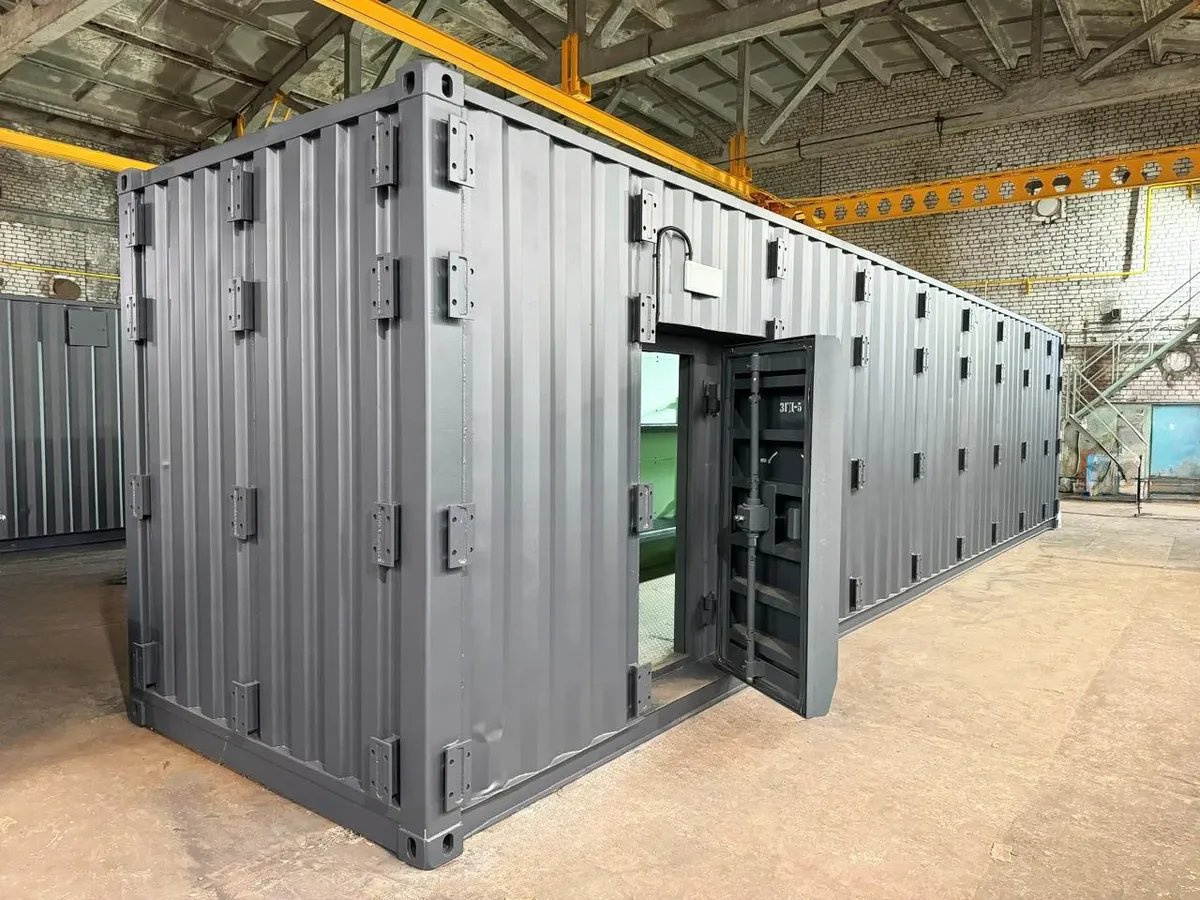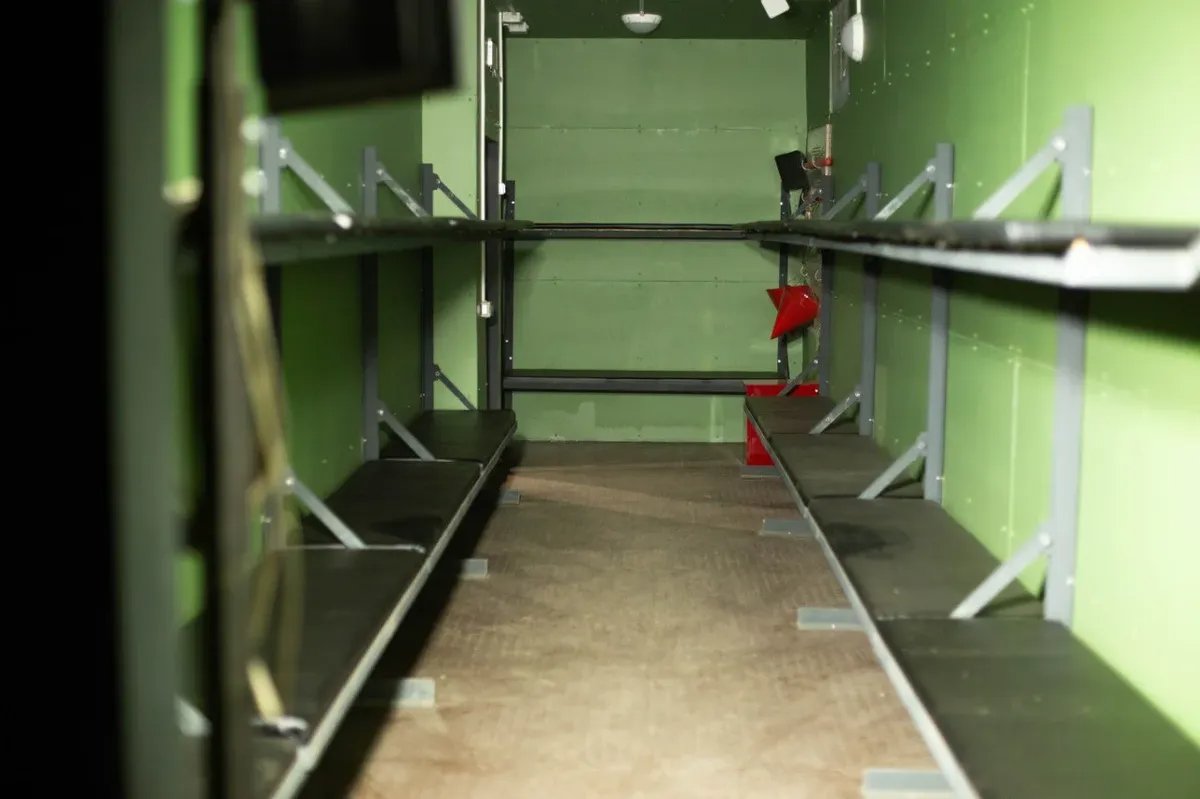
A mobile CUBE-M shelter. Photo: Russian Research Institute for Civil Defence and Emergencies / Telegram
Mass production of mobile nuclear shelters began earlier this month in the Russian city of Dzerzhinsk, in the central Nizhny Novgorod region, the Russian Research Institute for Civil Defence and Emergencies has announced.
The CUBE-M shelter will “protect people from various threats, including natural disasters and man-made events”, the institute said.
The shelter’s designers told reporters in December 2023 that the CUBE-M would “provide 48 hours of protection from the shock wave and light radiation of a nuclear explosion, penetrating radiation and radioactive contamination”, as well as “falling debris, hazardous chemicals and fires”.

A mobile CUBE-M shelter interior. Photo: Russian Research Institute for Civil Defence and Emergencies / Telegram
The standard version is designed to accommodate 54 people and features two modules: a shelter and a technical unit. The shelter’s capacity can be increased by installing additional modules, according to the institute. Its designers say it is easy to transport and connect.
Meanwhile, a decree signed by Vladimir Putin updating Russia’s nuclear doctrine was published on the state’s legal information website on Tuesday.
The decree, which specifies that Putin makes the ultimate decision on whether to use nuclear weapons, followed reports that US President Joe Biden had authorised Kyiv to use US-supplied ATACMS missiles to hit military targets deep inside Russian territory.
Kremlin spokesperson Dmitry Peskov told reporters on Monday that the reported policy change in Washington represented “a new round of tensions” and “a new situation in terms of US involvement in this conflict”.
